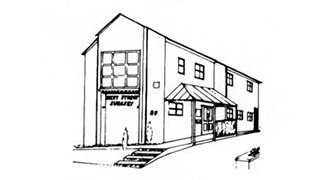Blood Pressure Explained
Blood pressure is the pressure of blood in your arteries. Your arteries are the vessels (tubes) that carry blood from your heart to your brain and the rest of your body. You need a certain amount of pressure to get the blood moving around your body.
Your blood pressure naturally goes up and down throughout the day and night, and it’s normal for it to go up while you’re moving about. It’s when your overall blood pressure is always high, even when you are resting, that you need to do something about it.
Blood pressure is measured using two numbers:
Systolic pressure: this is the higher of the two numbers. It’s the pressure against your arteries when your heart is pumping blood around your body.
Diastolic pressure: this is the lower of the two numbers. It shows how much pressure is in your arteries when your heart relaxes between beats.High Blood Pressure
The medical term for high blood pressure is ‘hypertension’, and it means your blood pressure is always too high. This means your heart is working harder when pumping blood around your body. If you suffer from hypertension you will need to speak to a clinician. BP can be lowered by lifestyle changes but sometimes medication is required.
Your arteries are normally stretchy, so they can cope with your blood pressure going up and down. But with high blood pressure, your arteries lose their stretchiness, becoming stiff or narrow. This narrowing makes it easier for fatty material to build up which can trigger a life-threatening heart attack or stroke. Untreated it can also lead to kidney failure, vascular dementia, heart failure and sight issues.
High blood pressure is very common, especially in older adults. There are usually no symptoms, so you may not realise you have it.
Things that increase your chances of having high blood pressure include:
your age – you’re more likely to get high blood pressure as you get older
having close relatives with high blood pressure
your ethnicity – you’re at higher risk if you have a Black African, Black Caribbean or South Asian ethnic background
having an unhealthy diet – especially a diet that’s high in salt
being overweight
smoking
drinking too much alcohol
feeling stressed over a long periodRecording Your Blood Pressure Readings
From time to time we ask our patients to provide a Blood Pressure reading. Having an up to date BP reading recorded on your patient record is important and iit helps us to monitor your health.
If the reading is out of range, we will ask you to keep a dairy. We have a team of highly experienced pharmacists who have additional qualifications in hypertension management, that will be able to support our patients.
Introducing Florence or “Flo” for short.
We are delighted to offer our patients with high blood pressure an opportunity to use Florence – a totally free automated text messaging system to send in your BP readings and receive tips and tricks to help manage at home.
To find out more, please click on the link below:
How does Florence work?Managing Your Blood Pressure: Diet, Exercise and Alcohol
Keeping your blood pressure within a healthy range is essential for long-term heart and overall health. Simple lifestyle changes can make a big difference, especially when it comes to what you eat, how active you are, and your alcohol intake.
1. Diet and Blood Pressure
A healthy, balanced diet plays a vital role in managing blood pressure.
Tips for a heart-healthy diet:
Reduce salt: Too much salt can raise your blood pressure. Aim for no more than 6g (about a teaspoon) per day.
Eat more fruit and veg: Try to eat at least 5 portions of fruit and vegetables every day.
Choose wholegrains: Opt for wholemeal bread, brown rice and oats which are high in fibre.
Limit saturated fats: Cut back on fatty meats, butter and full-fat dairy. Choose lean meats, fish, and low-fat alternatives.
Watch portion sizes and avoid processed foods where possible, as they often contain hidden salt and sugar.
🔗 NHS Healthy Eating
2. Exercise and Blood Pressure
Being physically active strengthens your heart and improves circulation, helping to lower your blood pressure over time.
How much exercise is recommended?
Adults should aim for at least 150 minutes of moderate activity each week, such as brisk walking, cycling, or swimming.
If you’re just starting, even short walks or light activity counts — start slowly and build up.
🔗 NHS Physical Activity Guidelines
3. Alcohol and Blood Pressure
Drinking too much alcohol can raise your blood pressure and reduce the effectiveness of blood pressure medications.
Recommendations:
Stick to the recommended limit of no more than 14 units of alcohol per week.
Try to spread your drinking over 3 or more days if you drink regularly.
Have several alcohol-free days each week.
Examples of 14 units:
6 pints of average-strength beer (4%)
6 standard glasses of wine (175ml at 13%)
🔗 NHS Alcohol Support
When to See Your GP
If you’re concerned about your blood pressure, or have been told it’s high, it’s important to have regular check-ups. We can offer advice tailored to you and help monitor your progress.
You can book an appointment or speak to a member of our clinical team by calling the surgery or using our online contact form on this website.
Blood pressure
Page published: 21 October 2024
Last updated: 17 July 2025
